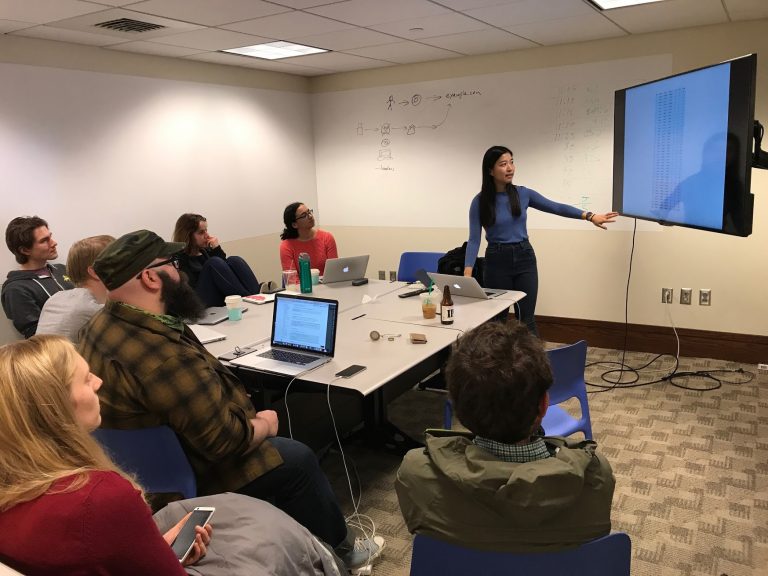(This is a guest post by John Bowers, a student at Harvard College who is collaborating with us on the Entropy Project. John will be a Berktern here this Summer.)
In last week’s LIL talk, team member and graduating senior Yunhan Xu shared some key findings from her prize-winning thesis “A Small Study of Epic Proportions: Toward a Statistical Reading of the Aeneid.” As an impressive entry into the evolving “digital humanities” literature, Yunhan’s thesis blended the empirical rigor of statistical analysis with storytelling and interpretive methods drawn from the study of classics.

The presentation dealt with four analytical methodologies applied in the thesis. For each, Yunhan offered a detailed overview of tools and key findings.
\1. Syntactic Analysis. Yunhan analyzed the relative frequencies with which different verb tenses and parts of speech occur across the Aeneid’s 12 books. Her results lent insight into the “shape” of the epic’s narrative, as well as its stylistic character in relation to other works.
\2. Sentiment Analysis. Yunhan used sentiment analysis tools to examine the Aeneid’s emotional arc, analyze the normative descriptive treatment of its heroes and villains, and differentiate—following more conventional classics scholarship—the tonality of its books.
\3. Topic Modeling. Here, Yunhan subjected existing bipartite and tripartite “partitionings” of the Aeneid to statistical inquiry. By applying sophisticated topic modelling techniques including Latent Dirichlet Allocation and Non-Negative Matrix Factorization, she made a compelling case for the tripartite interpretation. In doing so, she added a novel voice to a noteworthy debate in the classics community.
\4. Network Analysis. By leveraging statistical tools to analyze the coincidence of and interactions between the Aeneid’s many characters, Yunhan generated a number of compelling visualizations mapping narrative progression between books in terms of relationships.

In the closing minutes of her presentation, Yunhan reflected on the broader implications of the digital humanities for the study of classics. While some scholars remain skeptical of the digital humanities, Yunhan sees enormous potential for collaboration and coevolution between the new way and the old.